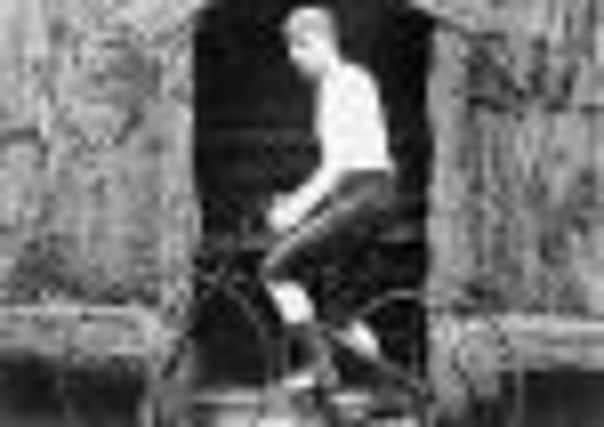Sporting archives keeping pace with the Olympic Games


CHEESE rolling, gurning and table skittles may not be events at this year’s Olympics (nor are they ever likely to be), but they’re still part of Britain’s rich, and sometimes eccentric, sporting heritage.
They are also among the many sports and activities that make up the The National Archives’ latest campaign – Sports, Games and the Olympics. The campaign includes exhibitions across the country revealing the stories behind British sports and games, both great and small, over the last 200 years.
Advertisement
Hide AdAdvertisement
Hide AdFrom London to Cornwall and Manchester to Hull, British sporting legacy is being brought to life through photographs and film footage from archive organisations, local record offices and councils, and people are being encouraged to find out more about the history of sport in their communities and some of their past sporting heroes.
Among those involved is the Royal Albert Hall which, since it was first opened in 1871, has played host to fencing and tug-of-war and in 1909 held the world’s first indoor marathon. Also featured are some remarkable tales from the Olympic Games, including those held in London in 1908 and 1948.
Caroline Williams, president of the Archives and Records Association (UK & Ireland), believes the campaign is a great opportunity to reconnect with our heritage.
“The 2012 London Games is a once-in-a-lifetime celebration and what better way for archives up and down the country to pay homage to our sporting legacy both historical and contemporary than with an archival sports festival,” she says.
Advertisement
Hide AdAdvertisement
Hide AdAs well as honouring Olympians and Paralympians, the archives focus on the achievements of local champions and in Gloucestershire archives teams are putting the spotlight on some lesser known sporting activities from the past such as shove-groat and cheese rolling.
In Yorkshire, there are a string of events and exhibitions over the coming months. From July 2 to 21, Hull History Centre is displaying tennis and cricket items including old score books from the 1840s and accounts of the occasion England played Hull in 1849 when an England XI played against 22 batsmen from Hull and won. The centre is also holding an event that looks at a range of sports including swimming, cycling, athletics and the interestingly named Rational Dress movement, as well as material relating directly to the Olympics.
Elsewhere, West Yorkshire Archive Service is running a sporting heroes project celebrating the diverse sporting landscape of West Yorkshire that captures the memories of players and ex-players from the world of football, rugby league and cricket.
Across the Pennines, Manchester Jewish Museum’s exhibition – Playing the Game: Sporting Life in Jewish Manchester – challenges the common misconception that “Jewish people do not play sport” and highlights the important role it has played in Jewish life in the city since the 1890s.
Advertisement
Hide AdAdvertisement
Hide Ad“With this being the Olympic year and the Queen’s Diamond Jubilee we thought it would be a great opportunity to look back at our sporting history,” says Angela Owusu, from the Archive Awareness Campaign. “I hope that people visiting these treasure troves will take away memories of our sporting history to cherish for the rest of their lives. With the plethora of events from film screenings and drama to cartoon workshops and photographic tours, everyone across the UK can relive the past excitement of our sporting history.”
There are plenty of fascinating, and sometimes moving, tales.
“There’s the heart-rending story of Dorando Pietri, the Italian runner who won the 1908 Olympic Marathon but was then disqualified because the race assistants had helped him over the line. The judges’ decision not to award him the gold medal led to a public outrage and he became an international celebrity overnight,” she says.
Other Olympic stories are also captured in exhibitions, including the infamous 1936 Berlin Olympics when black athlete Jesse Owens won four gold medals in front of the Nazi leaders. British athlete Audrey Court competed in these games, winning silver in the 4x100 metres relay, and her memories are retold in an exhibition at Birmingham University.
Advertisement
Hide AdAdvertisement
Hide AdOwusu believes these stories and many more like them deserve to be remembered. “Some of the sports people will never have heard of before but that’s why it’s important, because it encourages people to remember forgotten heroes from their communities.”